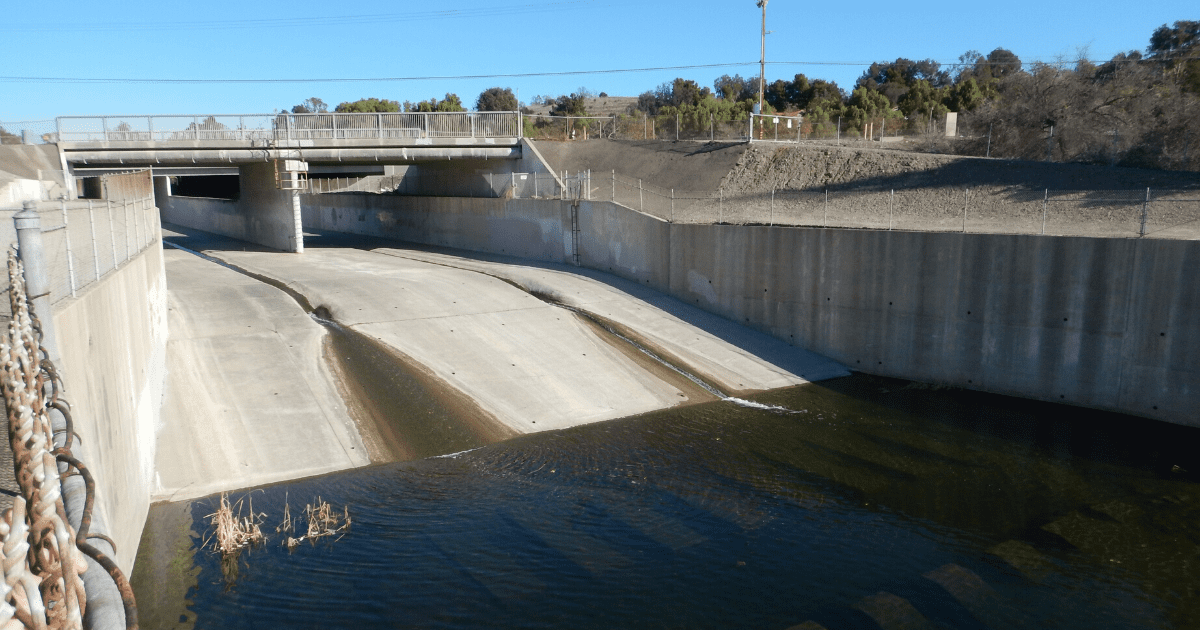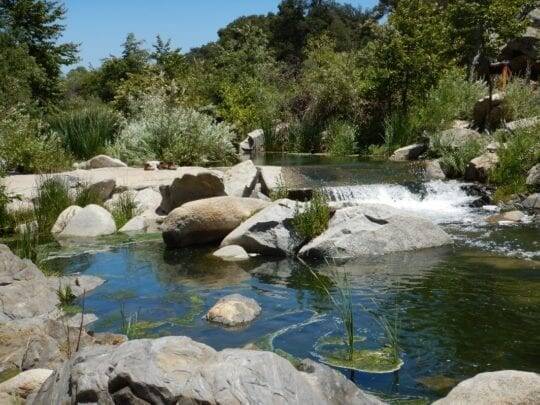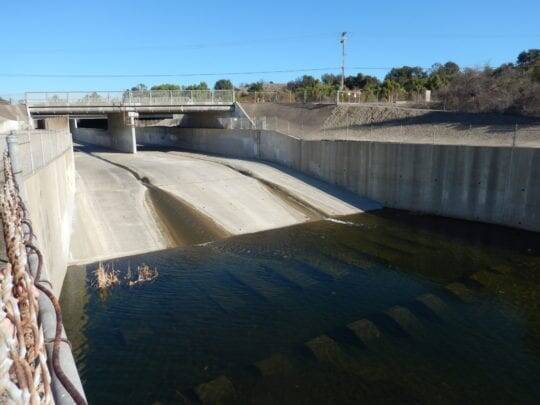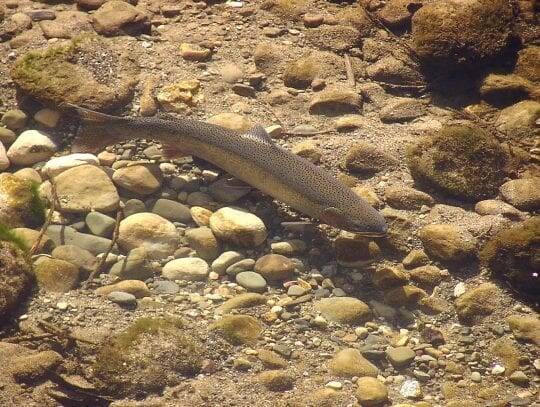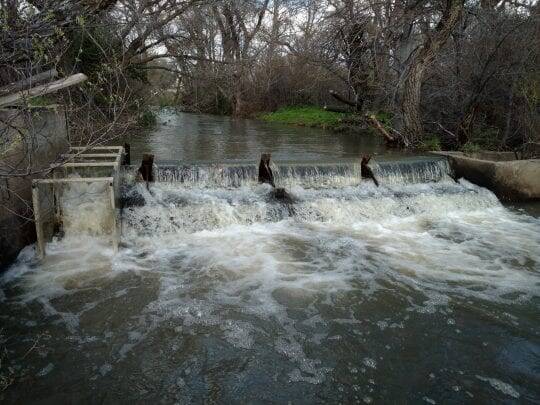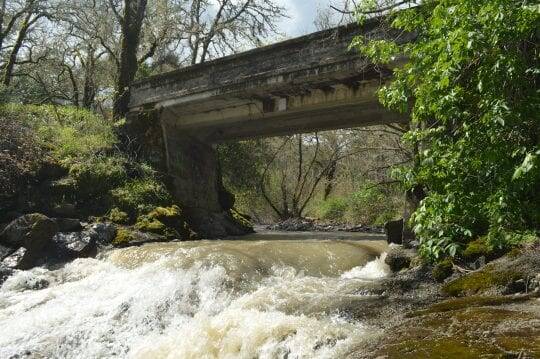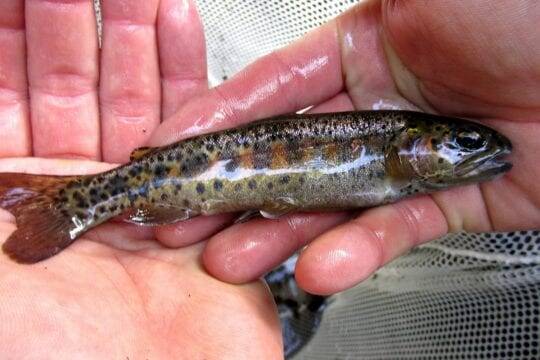CalTrout Awarded $4.9M to Pursue Reconnect Habitat and Protect the Best Projects
We are excited to announce that six CalTrout projects to Reconnect Habitat and Protect the Best are moving forward thanks to grant funding opportunities from the California Department of Fish and Wildlife (CDFW) voter-approved Prop 68, CDFW Fisheries Restoration Grant Program, and SoCal Edison.
Government grants make up 60% of our operating budget, allowing us to execute large-scale and significant programs that benefit wild fish and people in California. In 2018, voters passed Prop 68 which helps provide critical funding to allow us to keep moving forward on projects that support habitat resiliency, resource enhancement, and climate preparedness.
The California Department of Fish and Wildlife (CDFW) selected 14 projects out of 124 proposals to receive funding. Proposition 68 provides funding to CDFW to award grants to projects that improve a community’s ability to adapt to the unavoidable impacts of climate change, develop future recreational opportunities, enhance drought tolerance, landscape resilience, and water retention.
Below are the six projects by CalTrout that were awarded totaling $4,972,486.
Final Design for Santa Margarita River Fish Passage Project and Bridge Replacement
$1,928,717 award from Fisheries Restoration Grant Program + $714,865 award from CDFW Proposition 68 funding
The Sandia Creek Drive bridge currently blocks fish passage to 12 miles of upstream habitat. As a result, adult steelhead cannot reach their natal spawning grounds in the river’s headwaters. Replacing this bridge removes the last remaining barrier on the main river to allow steelhead to repopulate the Santa Margarita watershed.
The bridge also presents a safety issue for local residents, recreationists, and commuters traveling on Sandia Creek Drive. The bridge floods during heavy rains; in February of 2019, the bridge was completely submerged by floodwaters. With a total price tag of $16 million for the bridge replacement project, CalTrout hopes the new grant will spur additional funding from other sources.
Final Fish Passage Design for the I-5 and Metrolink barriers in Trabuco Creek
$1,499,499 award from CDFW Proposition 68 funding
The main goal of this project is to enable steelhead passage through this total barrier at the Interstate 5 bridge array on Trabuco Creek and provide access to 15 miles of upstream high-quality spawning and rearing habitat. Trabuco Creek, as part of the San Juan Creek watershed, is a high priority steelhead recovery river identified in the National Marine Fisheries Services (NMFS, 2012) Southern California Steelhead Recovery Plan.
Southern California Steelhead Coalition (SCSC)
$302,000 from CDFW Fisheries Restoration Grant Program
Based in San Diego, the Coalition works to re-establish Southern California steelhead populations in high priority rivers. Much of their work involves balancing the needs of wild fish in urban landscapes. The Coalition mission is to implement the federal recovery plan by prioritizing, coordinating and integrating conservation and recovery efforts for Southern steelhead using the best available science that conserves their ecological resilience, restores native steelhead and resident rainbow trout populations and promotes conservation stewardship.
Advancing Fish Passage in the Little Shasta Watershed
$292,405 award from CDFW Proposition 68 funding
This project will result in the complete elimination of a temporal migration barrier currently blocking access to up to seven kilometers of ideal cold-water spawning and over-summering habitat for juvenile coho salmon habitat in the Little Shasta River. The project will also result in habitat enhancement, improved ecological function, and improved streamflow at critical times of the year for out-migrating juvenile coho salmon.
Sulphur Creek Fish Passage Improvement Project – 100% Designs
$220,000 award from CDFW Proposition 68 funding
In this project, CalTrout partners with landowners and the Napa RCD to Protect and Restore anadromous fish habitat by readying a fish passage barrier on Sulphur Creek for removal, providing year-round access to spawning and rearing refugia off the main stem Napa River and improving ecosystem function. It furthers the goals of Prop 68 to improve and protect wildlife connectivity or habitat, coastal and rural economies, agricultural viability; and, improves a community’s ability to adapt to the unavoidable impacts of climate change. Similarly, the project furthers the goals of Prop 1, by increasing the economic benefits arising from healthy watersheds: improving fishery resources and in-stream flow; implementing watershed adaptation projects to reduce the impacts of climate change on California’s communities and ecosystems; restoring aquatic ecosystems including fish and wildlife corridors; removing barriers to fish passage, and assisting in the recovery of endangered species.
Native Rainbow Trout Sub-Population Translocation
$15,000 from Southern California Edison
A separate grant from SoCal Edison will supplement funds of the SCSC grant to support a GIS-based project that identifies and prioritizes new, high-quality habitat for small rainbow trout populations rescued from wildfire and drought conditions. Rainbow trout are steelhead populations that have been cut off from access to the ocean, whether through natural or human-caused processes and now reside exclusively in remote backcountry habitats in Southern California. Fires and droughts can quickly wipe out these small, isolated populations of native trout.


